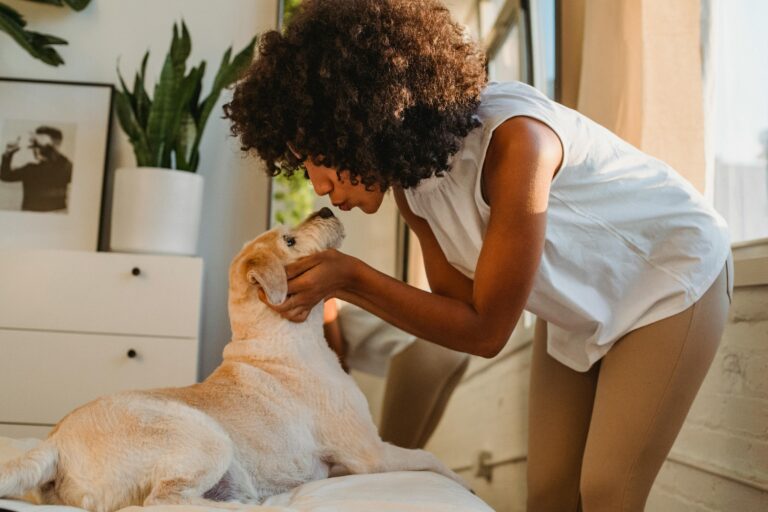Adopting a dog is a meaningful and exciting decision, but it’s also one that requires thoughtful consideration. With hundreds of breeds and countless mixed-breed combinations available, choosing the right dog for your lifestyle isn’t just about picking the cutest face or the most popular breed. It’s about understanding your own needs, preferences, and capabilities, then matching those with a dog whose temperament, energy level, and care requirements align with your life. Before you bring a new companion home, ask yourself these essential questions to ensure a happy, lasting relationship.
Menu list
What Is My Daily Routine Like?
Your schedule plays a major role in determining the type of dog that will thrive in your home. High-energy breeds like Border Collies or Huskies need ample exercise and mental stimulation, which may not be feasible if you work long hours or travel frequently. On the other hand, more laid-back breeds such as Bulldogs or Basset Hounds may be content with shorter walks and more downtime.
Consider how much time you can realistically dedicate to walks, playtime, training, and companionship. Dogs are social animals, and many breeds suffer from separation anxiety or behavioral issues if left alone for extended periods. If your lifestyle is busy or unpredictable, you might want to explore breeds known for independence or consider adopting an older dog with lower activity needs.
How Much Space Do I Have?
Your living environment is another key factor. Large breeds like Great Danes or Bernese Mountain Dogs may struggle in small apartments, not just because of their size but due to their need for movement. Conversely, smaller breeds such as Chihuahuas or Pomeranians can adapt well to compact spaces, though they still require regular exercise and stimulation.
If you have a backyard, that opens up possibilities for more active breeds, but it’s not a substitute for walks and social interaction. Urban dwellers should also consider how pet-friendly their building and neighborhood are. Are there nearby parks or walking trails? Is your landlord okay with pets? These practical considerations can help narrow down your options.
What Are My Physical Capabilities?
Dogs vary widely in their strength, energy, and training needs. If you’re adopting a breed that’s known for pulling on the leash or requiring firm, you’ll need to be physically capable of managing that. Seniors or individuals with mobility limitations may prefer smaller, calmer breeds that are easier to handle and less likely to cause injury.
It’s also worth considering how much grooming and maintenance you’re prepared to take on. Long-haired breeds like Shih Tzus or Afghan Hounds require regular brushing and professional grooming to stay healthy and comfortable. If you’re not up for that level of upkeep, a short-haired breed might be a better fit. For those in need of professional help, dog grooming in Cary, NC or your area can be a valuable resource to keep your pet looking and feeling their best.
What Is My Experience Level With Dogs?
First-time dog owners should be cautious about adopting breeds that are known for being stubborn, high-maintenance, or prone to behavioral issues. Breeds like Akitas or Belgian Malinois, while intelligent and loyal, often require experienced handlers who understand canine behavior and training techniques.
More beginner-friendly breeds include Golden Retrievers, Labrador Retrievers, and Cavalier King Charles Spaniels. These dogs tend to be more forgiving of training mistakes and are generally eager to please. Mixed breeds from shelters can also be wonderful companions, especially when their temperament has been assessed by staff or foster families.
What Are My Long-Term Plans?
Dogs are a long-term commitment, often 10 to 15 years or more. Before choosing a breed, think about how your life might change in the coming years. Are you planning to move, start a family, or change careers? Some breeds are better with children than others, and some may not tolerate other pets well.
Also consider the financial commitment. Beyond food and toys, dogs require regular veterinary care, vaccinations, and sometimes specialized services like training or grooming. Larger breeds typically cost more to feed and may be prone to specific health issues. Make sure you’re prepared for both the expected and unexpected costs of pet ownership.
Conclusion
Choosing the right dog breed is about more than personal preference, but more so about compatibility, responsibility, and foresight. By asking yourself these essential questions, you can make a more informed decision that benefits both you and your future pet. Whether you’re drawn to a playful puppy or a mellow senior dog, the key is to find a companion whose needs align with your lifestyle and capabilities. A thoughtful adoption process leads to a happier home and a stronger bond that lasts for years to come.





